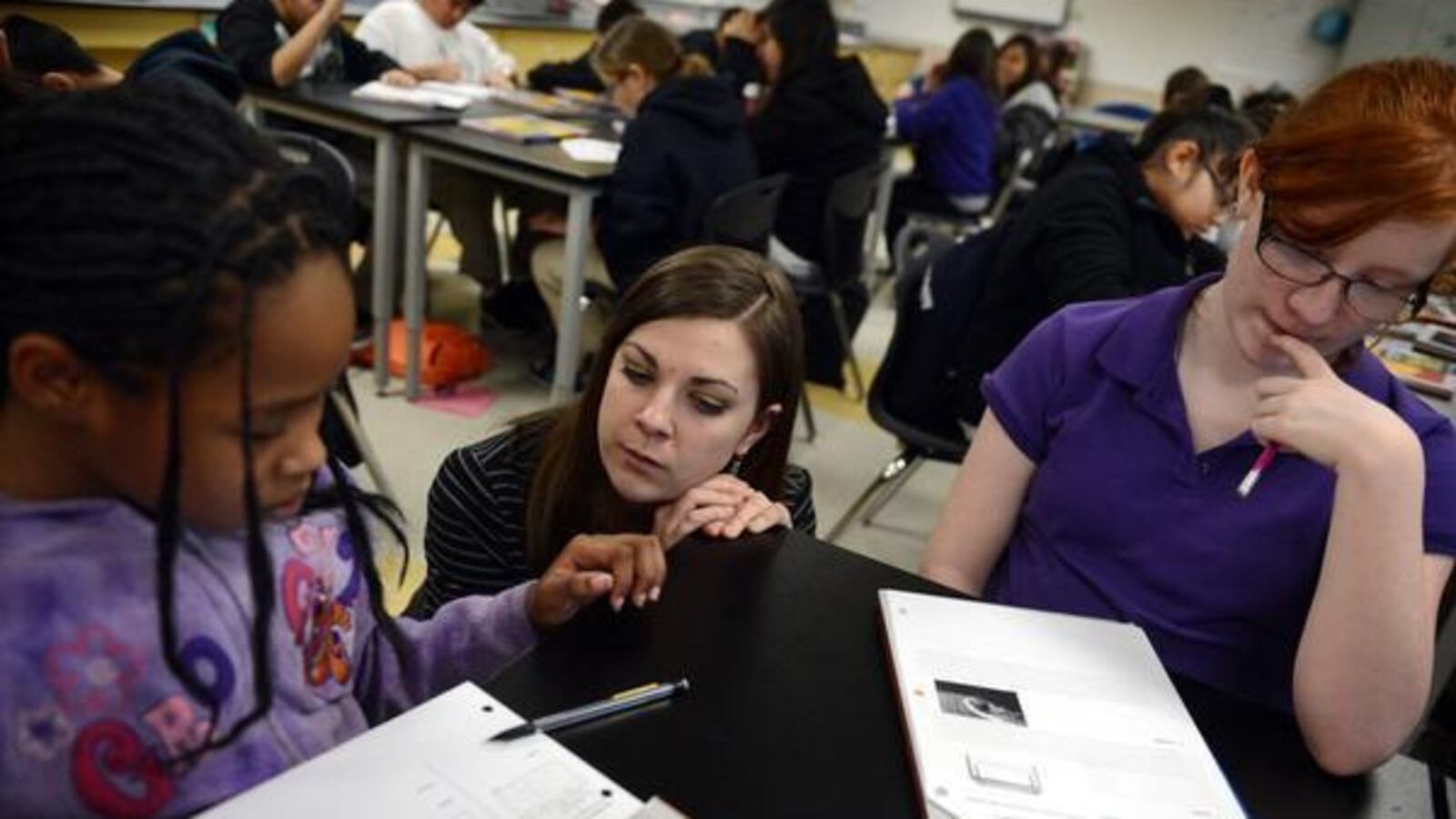The House Education Committee on Monday unanimously approved a bill that would raise the bar for low-performing Colorado schools and districts to avoid state intervention, allow state officials to step in with help earlier, and give greater voice to parents.
The legislation also would clearly spell out what happens when schools and districts already under state-approved improvement plans don’t improve enough — something lacking in Colorado’s current school accountability system, in place since 2009.
In Colorado, struggling schools and districts that have failed to adequately improve student performance for five straight years run out of time on the “accountability clock.” The state can then order changes ranging from contracting out some services to charter school takeover and school closure. Last spring, the state approved plans for schools and districts for the first time under the current system, opting for some of the less extreme measures at its disposal.
The bill that cleared its first legislative hurdle Monday is not an overhaul of how Colorado holds schools and districts accountable, but rather a response to issues and questions that have come up in the first round of enforcement.
One key element of the bill would make it a harder for schools to get off the clock by requiring two years, rather than one, of improved performance.
But some school districts, including Aurora and Westminster, feel like the bill creates a “moving target” and asked for more time to offer amendments. For their part, committee members asked pressing questions about whether the state is going too easy on schools that haven’t managed to improve on their own.
“You’re talking about empowering the local district,” said state Rep. Pete Lee, a Colorado Springs Democrat. “What do we do to get them to up their game? Because if we’re there at all, something went wrong.”
The inherent tension in school improvement efforts is that change takes time, and childhood is short. Committee members repeatedly pointed out that children could spend their entire school careers in “turnaround” schools, the lowest rating.
Alyssa Pearson, who oversees accountability efforts at the state department of education, said the hope of state officials is that by providing more help earlier in the process, schools will improve before state intervention is necessary. Outside consultants can review curriculum and instruction to make sure it aligns with state standards, examine the culture within schools, provide training for principals, and coordinate visits so local leaders can see schools with similar demographics that are successful. The bill expands the uses of state grant funds so that more of this work is eligible for financial assistance.
“Our goal is that no schools or districts have to come before the state board because student needs are being met,” Pearson said.
The bill also calls for districts to do more to involve parents earlier in the process and creates a required community meeting at which the Colorado Department of Education can communicate directly with parents. Under the current system, districts have a range of practices, and some parents say they don’t get the information they need from school and district officials.
Parents from Aurora, Pueblo, Westminster, and Adams 14 districts gave emotional testimony about the need to know what’s happening in their children’s schools.
One woman speaking on behalf of a group of Westminster and Adams 14 mothers said: “Their oldest children will not be going to college because they are not prepared. Those who have gone to college are struggling. … Our district blamed their overall performance on their children of color, on speaking Spanish.”
“Our children and parents are not ‘at-risk’ but disenfranchised,” she continued. “This bill has the potential to give parents power to be part of the solution.”
When Natalene Espinoza lost her housing and had to move in with relatives in her hometown of Pueblo, she felt so strongly about not sending them to Pueblo City Schools that she drove four hours a day for months to keep her kids enrolled in DSST: Conservatory Green until she could move back to the Denver metro area.
“I know what you’re thinking,” Espinoza said when she got to that detail. “But they’re worth it.”
“I honestly would have never known how my district was doing in Pueblo without doing intense research, which should not be the case,” she said. “We as mothers have an instinct about how are kids are doing, but we also deserve real information.”
Papa Dia of the African Leadership Group, which works with immigrant families in Denver and Aurora, said his group’s members know that education is key to achieving the American Dream, but their children aren’t learning what they should.
“When we send our children to school, we hope the school will do what they need to do, where at least they can read at grade level, where the older brother or sister can help the younger ones do their homework,” he said. “Right now, that is not the case.”
Dia said the bill would hold schools accountable the same way community members hold themselves accountable.
“I believe this bill draws a line in the sand that poor public education is not acceptable, and it is not acceptable anywhere,” Dia said.
State Rep. Alec Garnett, a Denver Democrat, voted for the bill, but he worried that taking this limited action would reduce the political will to tackle bigger problems in the accountability system.
“I’m not sure we’re going to use the sticks and hammers in a way that will really create change,” he said. “I can tell a lot of work has gone into this, but it’s important that everyone understand that the foundation against which we’re measuring success isn’t changing.”
State Rep. Brittany Pettersen, one of the bill’s sponsors and chair of the House Education Committee, said the bill aims to improve the current system, not remake it.
“This bill is about addressing our current system and making it work better for students,” she said.

